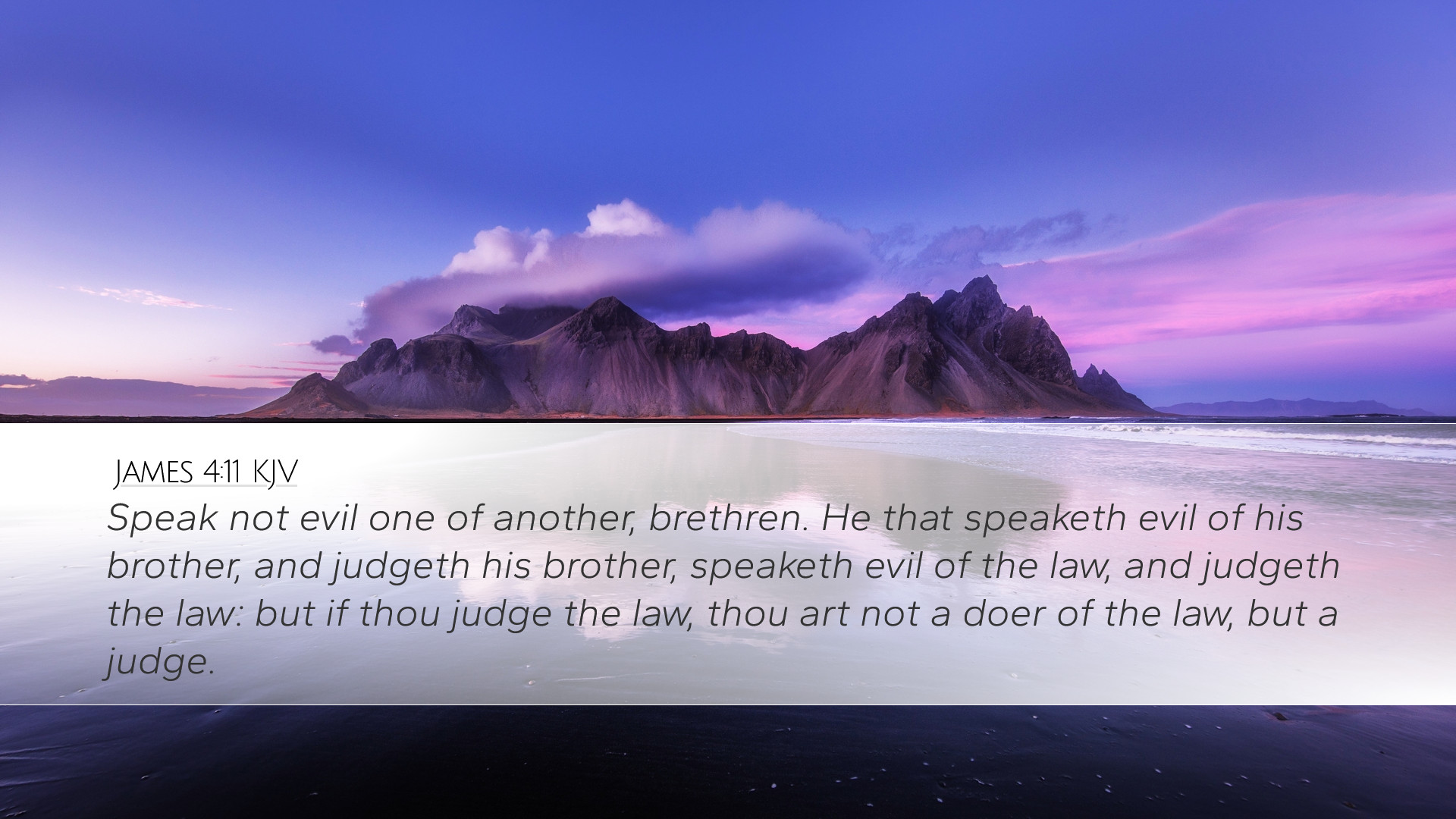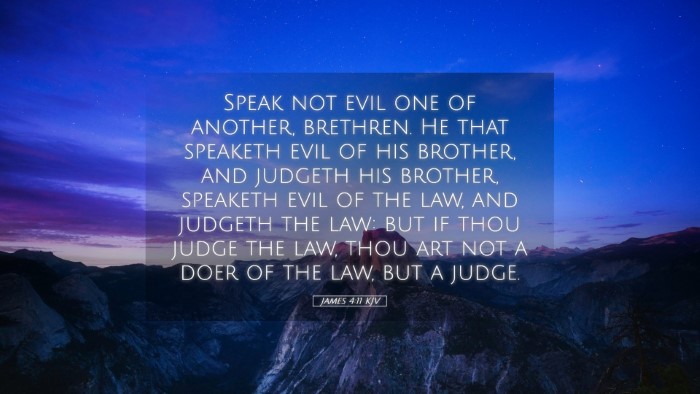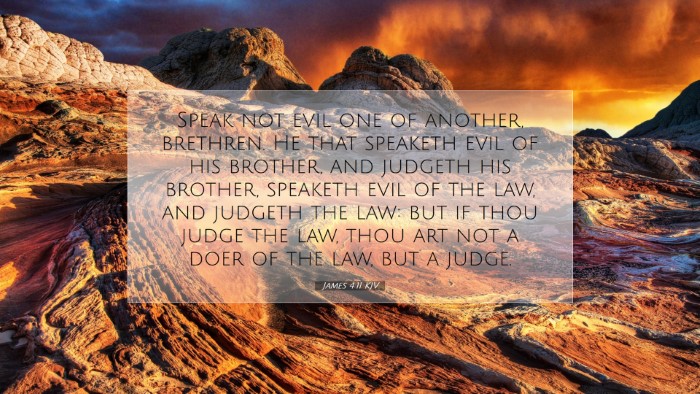Old Testament
Genesis Exodus Leviticus Numbers Deuteronomy Joshua Judges Ruth 1 Samuel 2 Samuel 1 Kings 2 Kings 1 Chronicles 2 Chronicles Ezra Nehemiah Esther Job Psalms Proverbs Ecclesiastes Song of Solomon Isaiah Jeremiah Lamentations Ezekiel Daniel Hosea Joel Amos Obadiah Jonah Micah Nahum Habakkuk Zephaniah Haggai Zechariah MalachiJames 4:11
James 4:11 KJV
Speak not evil one of another, brethren. He that speaketh evil of his brother, and judgeth his brother, speaketh evil of the law, and judgeth the law: but if thou judge the law, thou art not a doer of the law, but a judge.
James 4:11 Bible Commentary
Commentary on James 4:11
Verse: "Do not speak evil of one another, brethren. He who speaks evil of a brother and judges his brother, speaks evil of the law and judges the law. But if you judge the law, you are not a doer of the law but a judge."
Introduction
The epistle of James, often regarded as the "Proverbs of the New Testament," addresses practical aspects of Christian living, focusing on the ethical implications of faith. James 4:11 admonishes believers to refrain from speaking ill of one another, illuminating themes of judgment, unity, and the Christian community's integrity.
Exegesis and Analysis
Contextual Setting
This verse falls within a larger discourse on the causes of conflicts and the need for humility among believers (James 4:1-10). James sharply criticizes the tendency of Christians to judge and slander one another, indicating that such behavior emerges from pride and a misunderstanding of one's own position before God.
Matthew Henry's Insights
Matthew Henry emphasizes the importance of unity in the body of Christ and how slander undermines that unity. He notes:
- Speaking Evil: When one believer speaks evil of another, they sow discord and violate the commandment to love one another.
- Judging the Law: By judging and condemning others, we place ourselves in a position that usurps God's authority, as He alone is the Lawgiver and Judge.
Albert Barnes' Commentary
Albert Barnes furthers this discussion by explaining the nature of judgment within the Christian community:
- Brotherhood: The term "brethren" highlights our kinship in Christ, calling for mutual respect and love.
- Consequences of Judgment: Barnes asserts that to judge a brother is to set oneself above the law, questioning its authority and purpose.
- Law of Love: The "law" referred to is encapsulated in the command to love, which must govern our conduct toward one another.
Adam Clarke's Observations
Adam Clarke offers a theological perspective, introducing the idea of grace and mercy among believers:
- Repentance and Restoration: Clarke stresses the necessity of approaching one another with grace and a spirit of restoration rather than condemnation.
- The Role of the Judge: He reinforces that while believers are called to discern right from wrong, they must not assume the role of judge over others, as this undermines their own walk with God.
Theological Implications
The prohibition against speaking evil of one another carries significant theological weight. It beckons believers toward a deeper understanding of grace, mercy, and humility.
Unity in the Body of Christ
This verse serves as a reminder that the health of the church community is contingent upon the attitudes and actions of its members. Slander and judgment act as a poison, disrupting the fellowship of believers and damaging their witness to a watching world.
Judgment: Divine vs. Human
James draws a distinct line between the authority granted to God as the ultimate judge and the presumptuousness of human judgment. Believers are called to be doers of the law rather than judges, indicating a lifestyle characterized by obedience and service rather than condemnation.
Practical Applications
- Self-Examination: Pastors and leaders in the church should encourage self-examination regarding one's speech and attitudes toward others in the faith.
- Cultivation of Grace: The church should cultivate an environment of grace that allows for honest discussions and forgiveness rather than criticism and gossip.
- Promoting Christian Love: Emphasizing love as the guiding principle in all discussions and relationships among believers should be prioritized.
Conclusion
James 4:11 serves as a profound reminder of the high calling of believers to foster unity, love, and humility within the body of Christ. It challenges pastors, students, and theologians to reflect on their own words and actions, encouraging them to embody the grace and mercy that God has extended to them. The call to avoid slander and judgment is not merely a directive; it is an invitation to participate in the divine nature of love that characterizes the Kingdom of God.


